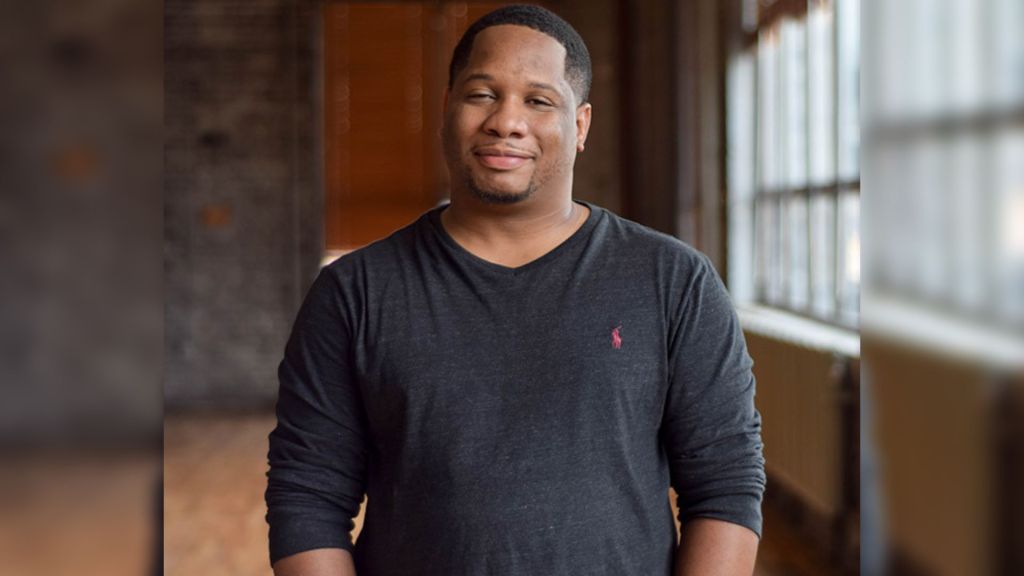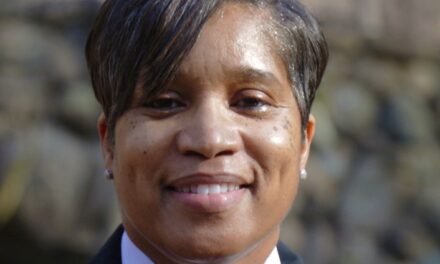By Dayvon Love
If we accept the premise that Black peoples’ grievances with America began with enslavement in the U.S., then we are also accepting White people’s ability to define and shape our reality.
The drive toward global domination of the non-White world by Europe and America was carried out by waging war against sovereign nations and societies. People of African descent in the Western-Hemisphere are prisoners of war. America is a settler colony that was able to emerge as a global superpower because of the material wealth it genocidally extracted from the dehumanization of Indigenous people and people of African descent.

Photo: Courtesy photo
The economic inertia from stealing the land from native people of the Americas and the enslavement of African people created the foundation upon which America has been able to become the wealthiest nation in the world.
Starting our grievances against the U.S. with enslavement renders the larger project of America as a legitimate enterprise. As Derrick Bell has brilliantly theorized, racism in America is permanent. There is no version of America where Black people are not subject to collective oppression and subjugation. Many in the mainstream social justice space are operating under the guise that they are fighting to make America a genuine multiracial democracy. As a Pan-Africanist, I am clear that what Black people should be fighting for is the development of independent Black institutions that will give us the capacity to navigate this society from a position of sovereignty and power, instead of relying on the benevolence of people outside of our community. We should build coalitions with other groups that are based on respect for our need for independent political action. We should not be looking to get this racist society to recognize our humanity, but to build the power needed to effectively advance our collective interests.
Over the past several years, a movement called American Descendants of Slaves (ADOS) has emerged and has taken up significant time and space in the conversation about reparations. They have been hostile toward Pan-Africanist and approaches to reparations that come from proponents of it. A lot has been said in these discussions, but I want to focus on the ADOS demand for lineage-based reparations. The central area of contention in the reparations conversation between ADOS and Pan-Africanists is about whether or not Black people should strive to be integrated into the American mainstream. Revolutionary Pan-Africanists believe that reparations should be about building our capacity to practice sovereignty. Pan-Africanists are clear that the existing social order is structured on the global system of White supremacy, capitalism, colonialism, and imperialism. The emphasis by ADOS on lineage reparations and a lack of serious engagement on how to build independent Black political power demonstrates that they are interested in an agenda that ultimately integrates Black people into the American mainstream. Cash payments for individual Black people are one intervention that should be on the table when discussing a holistic approach to reparations. But focusing on cash payments to African descendants in America simply puts more money in the hands of individual Black people in this oppressive social order that will ultimately maintain the collective subjugation of Black people.
All of the civilizational machinery that structures our individual engagements with society are owned and controlled by non-Black people. Global telecommunications, transnational financial institutions, the medical industry, and any of the major arenas of civic life that structure this society are not controlled by Black people. We cannot be a truly free and liberated people until we exercise meaningful power over the aforementioned arenas of civil society. This is truly a long-term endeavor, but this should be the framework we use to guide the work we are currently doing toward Black Liberation. This means that in regard to reparations, there needs to be investments in community-controlled, independent Black institutions that occupy various arenas of civil society. This is a complex but essential endeavor to build collective power amongst Black people. Any other approach that is based on having hope that this society will recognize the humanity of Black people is not informed by a sober-minded analysis of history.
One of the arguments that ADOS has used against Pan-Africanists who are advocates for reparations is that they are just talk and not actually engaged in work to impact Black people. This seems like an attempt to avoid substantive arguments about the limitations of their approach to reparations. LBS has been engaged in moving reparation policies in Maryland that have resulted in the establishment of dedicated funds for the communities impacted by the war on drugs. In Baltimore and in Maryland, where the majority of LBS’ work is done, I don’t see ADOS seriously engaged in the political arena. And what I see online appears to be mostly disruption and verbal confrontations that are not grounded in meaningful political advocacy. The focus on excluding non-American-born Black people from reparation demands seems like a pointless waste of time and energy that would be better spent moving policy that could result in reparations for Black people.
Seems counter-revolutionary to me.
The post How ADOS is counter revolutionary appeared first on AFRO American Newspapers.









